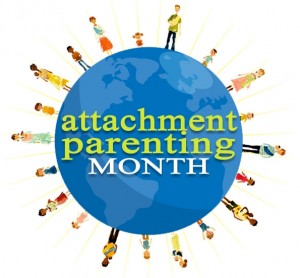By Melissa of Colorado, USA, who blogs at Nature Deva
Last night, we embarked on the first step of our journey of becoming foster-care parents in hopes to eventually adopt a child. After sitting in a meeting with other parents like us, I learned that we all had the same idea: It is wonderful that so many want to open their homes and their lives to help foster kids.
The social worker running the meeting gave us a three-hour overview of what the process entails and it seems not very likely that you would necessarily get to adopt the first child that comes to your home. They try to place the children with extended family first.
The social worker explained the steps to getting the foster child’s parent(s) back on track and what they have to do to become and maintain a level she referred to as “minimally adequate.” That term just blows my mind, but for people who are either addicted to drugs and/or alcohol, have low to no job skills, no real parenting skills or even basic life skills, there is much training and support provided to them to get them to that level of “minimally adequate” so that they can take care of their own children. The extended family members that may step up to take in these kids would have to meet the “minimally adequate” level as well and may also have to go through the foster-care training and get a physical, too, to be sure they are up for the job. Then, of course, there are the background checks out of the hiring process. This step is followed to the letter.
My heart was breaking for these parents and their “broken children,” as the social worker called them. Regardless of whatever external situations occurred, at the core as a parent you love your child.
Something that the social worker pointed out about the “broken children” is that they want to be with their families regardless, just as our children would always want to be with us. It’s just that something happened in their life that made it unsafe for them to stay living with their mom and/or dad and now they have to adjust to living with strangers. They will be scared, sad and confused.
This is where I feel Attachment Parenting can play a part in helping these child. Some things like cosleeping are not allowed by the foster care system, but nighttime parenting is still always important. Good nutrition, lots of attention and hugs, babywearing if a young child, positive encouragement, a good routine to their day and so on — all of it is so nurturing for any child but especially for a “broken child.”
The social worker made it clear that the gift of love a foster parent receives from these “broken children” is so much greater than the love foster parents give them. If and when their parents are successfully rehabilitated and the family is reunited, the gift to that child of being able to live with a nurturing foster family where they were loved on will last with that child forever.
The social worker said, “Yes, your heart will break when they leave you, if they are able to be reunified with their family. If your heart doesn’t break, then you didn’t let yourself love them enough.”
It seems to me as with everything in life, love is always the answer. I expect that my husband, my son and myself will have our hearts grow by leaps and bounds over this upcoming experience of opening our lives to help heal a “broken child.” It may be very challenging at times and every person is different, but we are up for it.


 Last Thursday, Attachment Parenting International officially declared the month of October Attachment Parenting Month (read
Last Thursday, Attachment Parenting International officially declared the month of October Attachment Parenting Month (read  Samantha has an amazing Curriculum Vitae and brings an exceptional level of experience to our organization (see the most recent issue of the Journal for more information). When she began in April she was greeted by staff members asking for a bit of an internal reorganization simply because we have grown by leaps and bounds over the past 10 months when it comes to internal support and external offerings. She came up with an excellent plan that has each of working much more efficiently and she did it all while considering our personal strengths and individual accomplishments. She has done a thorough evaluation of our organization and is furthering her efforts to ensure that we have a fabulous working environment and sturdy foundation to grow upon. Samantha encourages autonomy and believes in each volunteer’s capabilities but is always willing to work with you in ways that you need, or help you find the right course for what you are working on, if you ask.
Samantha has an amazing Curriculum Vitae and brings an exceptional level of experience to our organization (see the most recent issue of the Journal for more information). When she began in April she was greeted by staff members asking for a bit of an internal reorganization simply because we have grown by leaps and bounds over the past 10 months when it comes to internal support and external offerings. She came up with an excellent plan that has each of working much more efficiently and she did it all while considering our personal strengths and individual accomplishments. She has done a thorough evaluation of our organization and is furthering her efforts to ensure that we have a fabulous working environment and sturdy foundation to grow upon. Samantha encourages autonomy and believes in each volunteer’s capabilities but is always willing to work with you in ways that you need, or help you find the right course for what you are working on, if you ask.